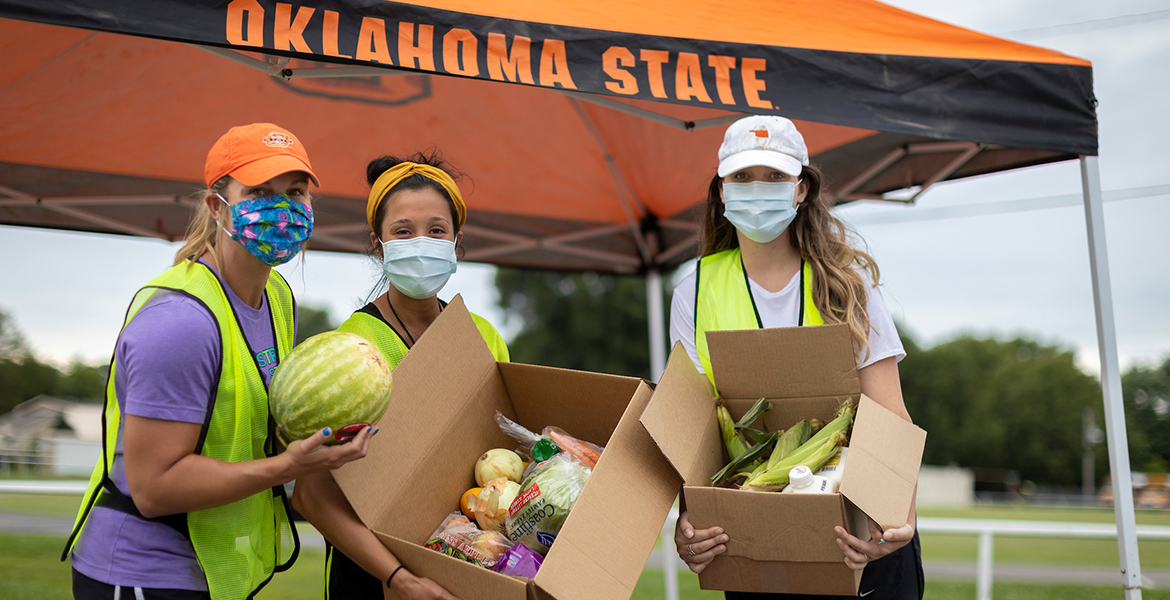
OSU study provides insights into regional beliefs about pandemic-related wearing of masks
Thursday, July 23, 2020
Oklahoma State University agricultural economics researchers teamed with their peers at Purdue University to conduct a national survey of U.S. residents to determine beliefs and knowledge regarding the role of masks in the spread of COVID-19.
The survey breaks up the results by region, such as the Oklahoma region that includes Oklahoma, Texas, New Mexico, Colorado, Kansas, Missouri and Arkansas. Respondents were surveyed June 12-20 of 2020.
“The multi-state focus is important because decisions regarding the pandemic tend to be influenced by states within a region, plus borders on a map are not a magic wall; coronavirus can spread across state lines easily,” said Courtney Bir, OSU Extension agricultural economist who was part of the multi-institutional research team.
An OSU report featuring Bir’s analysis is available online. She said the information should be of use to individuals, business operators, community leaders and those with public and private agencies and organizations when making decisions regarding COVID-19.
Key takeaways included:
- While daily life was interrupted considerably by COVID-19, it impacted Oklahoma-region respondents less than their national counterparts in acquiring food and paper products.
- Although 79% of respondents from the Oklahoma region believed masks have some potential role related to the spread of viral disease, what many thought of wearing masks was not positive.
- A lower percentage of Oklahoma-region respondents believed wearing a mask will help prevent future COVID-19 lockdowns in their communities compared with participants from other parts of the United States.
- A higher percentage of respondents from the Oklahoma region believed that wearing a mask does not prevent the spread of COVID-19 and has negative health consequences for the mask-wearer compared with respondents from the rest of the country.
- Even among those who believe masks have a role, 21% to 34% of respondents reported they were still not wearing a mask. If mask-wearing compliance to prevent the spread of COVID-19 is the goal of a business or state, interventions beyond explaining the role masks can play may be necessary.
- People in the Oklahoma region believe they – and those around them – are not at a higher risk of complications from COVID-19.
“The number of Oklahoma-region respondents who believe masks have a role but still do not wear a mask indicates multiple strategies may be required to achieve widespread mask-use to prevent the spread of COVID-19,” Bir said.
Analyses of regions and additional information from the survey are available online through Purdue University.
“Dr. Bir is providing unbiased research on key areas associated with risk management and informed decision-making during the COVID-19 pandemic,” said Cheryl DeVuyst, head of OSU’s Department of Agricultural Economics. “Schools, community organizations and business owners trust our faculty to provide fact-based input as they make important decisions.”
The academic department is part of the university’s Division of Agricultural Sciences and Natural Resources, which is comprised of the Ferguson College of Agriculture and two state agencies: OSU Extension and the Oklahoma Agricultural Experiment Station system.
MEDIA CONTACT: Donald Stotts | Agricultural Communications Services | 405-744-4079 | donald.stotts@okstate.edu
